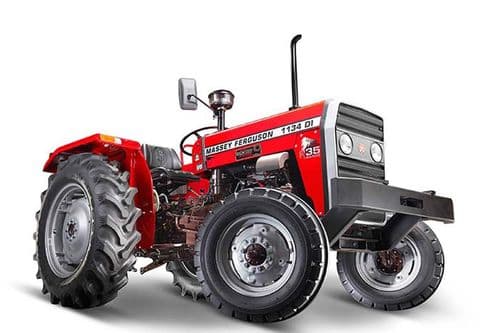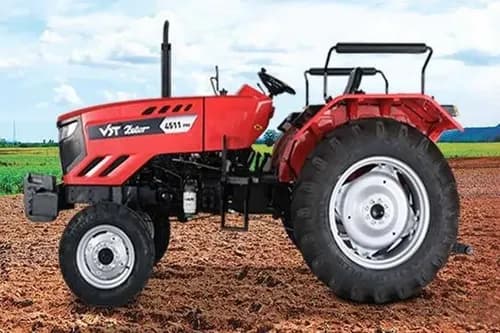Ad
Ad
Precision Agriculture in India: Growing More with Less
Precision agriculture involves gathering, processing, and analyzing data. This data is combined with other relevant information to support crop management decisions. In this article, we have discussed Precision Agriculture and its benefits.

As the population is increasing day by day, the demand for food is expected to increase by nearly 50% over the next four decades. However, expanding farmland is not a reliable solution, as much of the available land is already in use. In this case, Precision agriculture comes into the picture. Precision agriculture in India is a revolutionary approach that aims to maximize crop yields while minimizing resource inputs.
Precision Agriculture Definition
Precision agriculture, also known as precision farming, is an innovative approach to farming that utilizes advanced technology to optimize crop yields, minimize waste, and enhance overall efficiency in agricultural practices.
This method leverages data-driven insights and cutting-edge technologies to make more informed decisions in various aspects of farming, ranging from planting and irrigation to fertilization and pest control.
Precision Agriculture In India promises to revolutionize traditional farming methods and address the challenges posed by a growing global population, climate change, and the need for sustainable agricultural practices.
Precision agriculture involves gathering, processing, and analyzing data. This data is combined with other relevant information to support management decisions. The goal of precision farming in agriculture is to optimize resource use efficiency, improve crop quality, enhance profitability, and ensure sustainable agricultural production.
Key technologies used in precision farming in agriculture include site-specific nutrient management, remote sensing, global information systems (GIS), global positioning systems (GPS), and variable rate application. In this article, we have discussed Precision Agriculture, its uses and benefits.
What Is Precision Agriculture?
**Precision agriculture, also known as PA, is a farming management strategy that leverages technology to optimize agricultural production sustainably. It involves observing, measuring, and responding to variability within fields. Here are the key components of precision agriculture in India:
Data Collection and Sensing Technologies: Precision agriculture relies heavily on data collection through various sensing technologies. These may include Global Positioning System (GPS), Geographic Information System (GIS), remote sensing, and satellite imagery. These technologies provide farmers with accurate and real-time information about their fields, enabling them to make informed decisions.
GPS and Efficient Planting Patterns: GPS devices mounted on tractors allow farmers to plant crops in more efficient patterns. By precisely navigating from point A to point B, farmers save time and fuel. Additionally, laser-leveling of fields ensures efficient water application, reducing runoff into local streams and rivers.
Big Data and Predictive Farming: Precision farming in India involves monitoring and analyzing data related to weather, soil conditions, pests, and hydration. By collecting and transmitting this data, farmers can make exact and predictive decisions. Innovators are working on projects like ISOBlue, which aims to make data extraction more affordable by wirelessly transmitting farm equipment data to devices capable of analysis.
Variable Rate Technology (VRT): VRT allows farmers to customize the application of inputs such as water, fertilizers, and pesticides based on the specific needs of different areas within a field. By using data collected through sensors and GPS technology, farmers can adjust the rate of inputs to optimize resource utilization and improve crop yields.
Drones and Future Prospects: Although drones are not widely used in agriculture yet, the Federal Aviation Administration is considering regulations that would allow their use. If approved, drones could be a game-changer, providing real-time data on crop health, soil moisture, and pest infestations.
Also Read: Soil Conservation: Method and its importance
Popular Precision Agriculture Applications
Crop Monitoring and Mapping: Creates field maps considering crop yield variations.
Micro-Irrigation: Optimizes water usage for specific crop needs.
Crop Scouting Apps: Identify pests, diseases, and other issues in real-time. One of the primary applications of precision agriculture is the use of drones equipped with cameras to create high-resolution maps of fields. These aerial surveys provide farmers with detailed insights into the condition of their crops.
Climate Monitoring: Weather stations equipped with IoT tools. Accurate and timely weather information is essential for making informed decisions in agriculture. Precision agriculture utilizes hyper-local weather data to assist farmers in determining optimal planting times, irrigation schedules, and harvest windows.
Soil Health Management: Sensors measure soil temperature, moisture, and nutrients. Precision agriculture applications include mobile apps that facilitate soil sampling and analysis. These apps can collect data on soil type, fertility, moisture content, and other parameters. This information is invaluable in determining optimal irrigation schedules, fertilizer application rates, and other aspects of crop nutrition.
Farm Management Apps: Streamline operations and data organization. This data allows farmers to optimize workflows, assign tasks based on real-time needs, and ensure that resources are deployed where they are most needed. Improved labour management not only enhances efficiency but also contributes to a more sustainable and rewarding working environment.
Benefits of Precision Agriculture
1. Improved Crop Quality and Profitability
Precision agriculture employs technologies such as satellite imagery, GPS, and drones to monitor crops in real-time. Farmers receive accurate information about crop health, growth, and environmental conditions.
This data allows them to make timely adjustments, leading to better crop quality and increased profits. By optimizing resource allocation and using data-driven decisions, precision agriculture leads to higher crop yields.
2. Optimized Resource Use
Minimizing waste is a key advantage of precision agriculture. By precisely applying fertilizers, pesticides, and water, farmers reduce unnecessary resource consumption. This optimization benefits both the environment and the farmers.
3. Cost Savings
Although precision agriculture technologies may seem costly initially, the long-term savings outweigh the investment. Farmers can accurately calculate the required fertilizer amounts, choose effective fertilizer types for specific areas, and manage resources efficiently. Over time, this leads to significant cost savings. Farmers can save costs on fertilizers and fuel, improving overall profitability.
4. Remote Monitoring and Management
Precision agriculture allows farmers to remotely control various processes. Even small farms can manage large fields or multiple areas effectively. This remote management improves crop efficiency and reduces operational costs.
5. Sustainable Agriculture
Precision farming contributes to sustainable agriculture by addressing economic and ecological challenges. It helps preserve soil quality, optimize water usage, and ensure stable food supplies. As global food demand increases, precision agriculture plays a crucial role in combating hunger.
6. Environmental Benefits
Greater precision means reduced inputs (such as water, fertilizers, and chemicals) without compromising yield. This sustainable approach leads to higher production, less water usage, reduced nutrient runoff, and improved water quality. Reduced use of chemicals and efficient water management contribute to environmental conservation.
Also Read: Agroforestry: Importance, Scope, Benefits And Its Types
Conclusion
Precision agriculture in India is a modern farming practice that focuses on optimizing agricultural inputs to enhance productivity, quality, and profitability. As technology is upgrading day by day, we can expect even more innovations in this field, ultimately benefiting farmers, consumers, and the planet. By embracing precision agriculture, farmers can cultivate crops more efficiently, protect natural resources, and contribute to a sustainable future.
Precision agriculture is a transformative approach that holds great potential for making agriculture more sustainable and increasing food availability. Precision agriculture is not only about technology; it’s a practical approach to farming that balances economic viability and saves the environment and food security.
Features & Articles
Comprehensive Guide to Tractor Transmission System: Types, Functions, and Future Innovations
Learn about tractor transmission types, components, functions, and selection factors to enhance efficiency, performance, and agricultural productivity....
12-Mar-25 09:14 AM
Read Full NewsModern Tractors and Precision Farming: Transforming Agriculture for Sustainability
Precision farming enhances agriculture by integrating GPS, AI, and modern tractors for sustainable, efficient, and productive farming practices in India....
05-Feb-25 11:57 AM
Read Full NewsTop 10 Tractors Under 30 HP in India 2025: Guide
Top 10 tractors under 30 HP in India offer efficiency, affordability, and power, ideal for small farms with diverse agricultural needs....
03-Feb-25 01:17 PM
Read Full NewsNew Holland 3630 TX Super Plus vs Farmtrac 60 PowerMaxx: Detailed Comparison
Compare New Holland 3630 and Farmtrac 60 tractors by specs, price, and features to find the perfect fit for your farm....
15-Jan-25 12:23 PM
Read Full NewsSwaraj 735 FE Vs Eicher 380 2WD Prima G3: Detailed Comparison
The Swaraj 735 FE and Eicher 380 2WD Prima G3 are reliable, powerful tractors suited for various farming tasks....
14-Jan-25 09:41 AM
Read Full NewsHow to Choose the Perfect Tractor for Your Farm: A Comprehensive Guide
Choose the right tractor by assessing farm needs, horsepower, efficiency, comfort, and budget to enhance productivity and savings....
09-Jan-25 09:43 AM
Read Full NewsAd
Ad
As featured on:


Registered Office Address
Delente Technologies Pvt. Ltd.
M3M Cosmopolitan, 12th Cosmopolitan,
Golf Course Ext Rd, Sector 66, Gurugram, Haryana
pincode - 122002

























